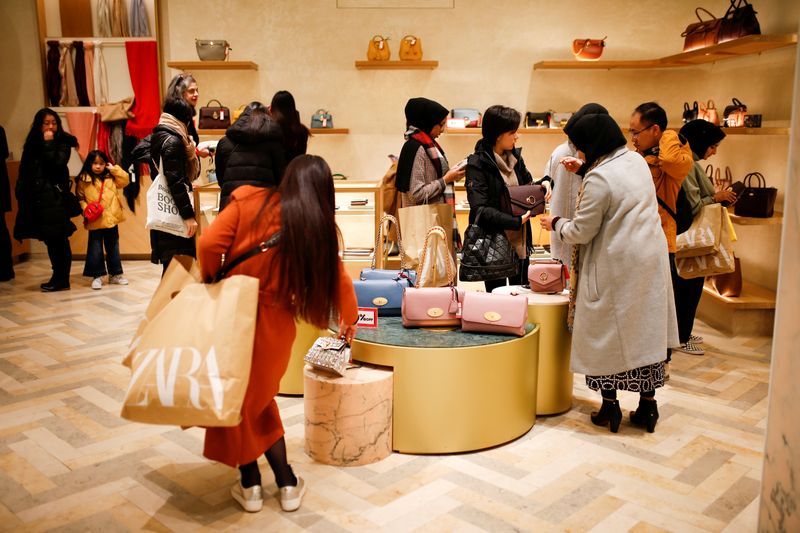LONDON (Reuters) - Britons kept a tight grip on their spending last month last month, a survey showed on Tuesday, suggesting that shoppers have not felt the jump in confidence reported by many companies since December's election broke the Brexit logjam.
Total retail spending edged up by an annual 0.4% in January, the British Retail Consortium said.
The average increase over the past 12 months was just 0.2%, the lowest since BRC's records began in 1995, while like-for-like retail sales in January, excluding changes in floor space from one year to the next, were flat.
"Although static sales might not appear triumphant, at least it is no further deterioration," Paul Martin, a partner at accountancy firm KPMG which produces the survey with BRC, said.
"Consumer confidence has started to return post-general election, but we have not experienced any major leaps for the sector yet."
Prime Minister Boris Johnson won a bigger-than-expected majority on the Dec. 12 election which ended the short-term uncertainty about whether Britain would leave the European Union at the end of January.
There have been signs that businesses and the housing market saw a jump in confidence and activity in January, although many companies are worried about the risk that Britain and the EU fail to get a trade deal by a Dec. 31 deadline.
A separate survey by Barclaycard, which covers a broader range spending, was more upbeat, showing an annual 3.9% jump in spending by consumers in January, boosted by spending on fuel and at supermarkets.
Spending at cinemas jumped by 22%, helped by the release of "1917", while travel agents and airlines also saw sales rise.
Barclaycard said consumer confidence in the British economy hit its highest level since September 2016 at 42%.

The survey was conducted between Jan. 24 and Jan. 27 by Longitude Research and included responses from 2,004 people.